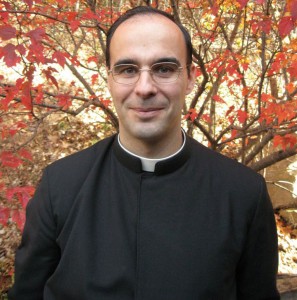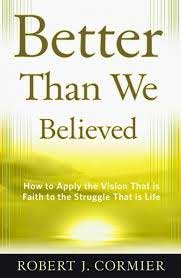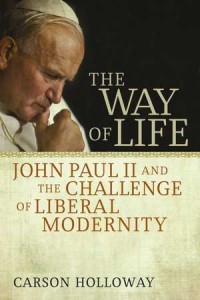USCCA43 Â Chapter 34- Embrace Poverty of Spirit : The 10th Commandment 
[powerpress]
Archbishop Lucas offers insights on the US Catholic Catechism for Adults Chapter 34:
On the positive side, the Tenth Commandment calls us to practice poverty of spirit and generosity of heart. These virtues liberate us from being slaves to money and possessions. They enable us to have a preferential love for the poor and to be witnesses of justice and peace in the world. They also enable us to adopt a simplicity of life that frees us from consumerism and helps us preserve God’s creation.
Sinful inclinations move us to envy what others have and lead to an unrestrained drive to acquire all that we can. We do have a reasonable need to acquire the means needed to care for our families. Greed is the distortion of this desire. The greedy person will stop at nothing to get all the money and possessions possible.
We need to remember that envy is the companion of greed; it is an attitude that fills us with sadness at the sight of another’s prosperity. Envious people can be consumed with so much desire for what others have that they will even commit crimes to get what they want.
Baptized people should counter envy with humility, thanksgiving to God for his gifts to oneself and to others, goodwill, and surrender to the providence of God (cf. CCC, no. 2554). “Christ’s faithful ‘have crucified the flesh with its passions and desires’ (Gal 5:24); they are led by the Spirit and follow his desires†(CCC, no. 2555). Poverty of heart is a way to avoid greed and envy. “Abandonment to the providence of the Father in heaven frees us from anxiety about tomorrow. Trust in God is a preparation for the blessedness of the poor. They shall see God†(CCC, no. 2547, citing Mt 6:25-34).
United States Conference of Catholic Bishops (USCCB) (2012-04-02). United States Catholic Catechism for Adults (Kindle Locations 6493-6504). United States Conference of Catholic Bishops (USCCB). Kindle Edition.
The Most Reverend George J. Lucas leads the Archdiocese of Omaha.Â
For other episodes in the visit our Archbishop George Lucas page
This programs is based on:
More information can be found here.
We wish to thank the USCCB for the permissions granted for use of  relevant material used in this series.
Tags: catholic, Catholic Catechism, catholic podcast, catholic prayer, cathollc spirituality, George Lucas, United States Conference of Catholic Bishops
This entry was posted on Wednesday, May 21st, 2014 at 11:34 am
You can follow any responses to this entry through the RSS 2.0 feed.
Episode 13-The Way of Mystery: The Eucharist and Moral Living 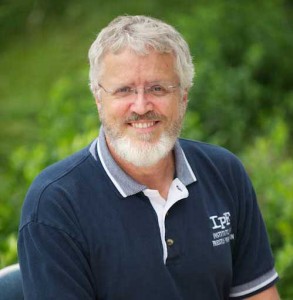
 The spiritual life and moral living… understanding the journey through the Purgative and Illuminative Way and their role in the moral life.
[powerpress]
For more episodes in “The Way of Mystery” Series click here
Deacon James Keating, PhD, the director of Theological Formation for the Institute for Priestly Formation, located at Creighton University, in Omaha, is making available to â€Discerning Hearts†and all who listen, his series of programs entitled “The Way of Mysteryâ€.
 The Vatican II documents remind us that the spiritual journey is not made in a vacuum, that God has chosen to save us, not individually, but as The People of God. The Eucharist must help Christians to make their choices by discerning out of Christ’s paschal mystery. For this process to take place, however, Christians must first understand how the Eucharist puts them in touch with Christ’s passion, death, and resurrection, and what concrete implications being in touch with this mystery has for their daily lives.
The Vatican II documents remind us that the spiritual journey is not made in a vacuum, that God has chosen to save us, not individually, but as The People of God. The Eucharist must help Christians to make their choices by discerning out of Christ’s paschal mystery. For this process to take place, however, Christians must first understand how the Eucharist puts them in touch with Christ’s passion, death, and resurrection, and what concrete implications being in touch with this mystery has for their daily lives.
For more information on the “Institute of Priestly Formation†and for other material available by Deacon Keating, just click here
Don’t forget to pickup a copy of “Communion with Christ†, it is one of the best audio sets on prayer…ever!
Check out Deacon Keating’s “Discerning Heart†page
Tags: catholic, catholic podcast, catholic prayer, cathollc spirituality, institute for priestly formation, james keating, the eucharist, theological formation
This entry was posted on Tuesday, May 20th, 2014 at 1:32 pm
You can follow any responses to this entry through the RSS 2.0 feed.
FG#16- The Way of Trust and Love Ep4 – Fountains of Grace: reflections on contemporary spiritual classics with Donna Garrett Join host Donna Garrett, with Fr. James Perez, LC, as they discuss the spiritual classic “The Way of Trust and Love: A Retreat Guided By St. Therese of Lisieux” by Fr. Jacques Philippe. [powerpress] Discussed in this episode, among other topics, from “The Way of Trust and Love”
Join host Donna Garrett, with Fr. James Perez, LC, as they discuss the spiritual classic “The Way of Trust and Love: A Retreat Guided By St. Therese of Lisieux” by Fr. Jacques Philippe. [powerpress] Discussed in this episode, among other topics, from “The Way of Trust and Love”
When a person is faithful to his or her times of prayer, day after day, week after week, it’s like someone with a well in the garden that’s choked with rubbish— branches, leaves, stones, mud— but underneath is water, clean and pure . In spending time in prayer, you’re setting to work patiently to unblock the well. What comes up at the start is the mud and dirt: our wretchedness, worries, fears, guilt, self-blame— the things we normally avoid. Plenty of people run away from themselves. There’s a real fear of silence today! But those who have the courage to go forward into the desert end up finding an oasis.
Let’s stay with the image of the well. We start digging, and at first it’s not very pleasant, because we come face-to-face with our limitations and human deficiencies. But if we persevere, we’ll end by finding the wellspring. We discover, to our joy, that at the bottom of our hearts flows a pure spring of water, the presence of God dwelling within us. Even if we are poor sinners, by going to the depths of our hearts in prayer we find pure, clear water. But only prayer grants us access to the bottom of our hearts.
Philippe, Jacques (2012-06-07). The Way of Trust and Love – A Retreat Guided by St. Therese of Lisieux (Kindle Locations 987-996). Scepter Publishers. Kindle Edition.
For other episodes in the this series click here “Fountains of Grace w/Donna Garrett“
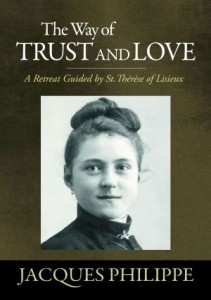 You can find “The Way of Trust and Love” here
You can find “The Way of Trust and Love” here
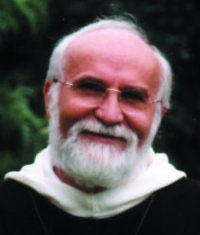
Fr. Jacques Philippe
Tags: catholic, catholic podcast, catholic prayer, cathollc spirituality
This entry was posted on Tuesday, May 20th, 2014 at 10:21 am
You can follow any responses to this entry through the RSS 2.0 feed.
Episode 8 The Daily Prayer of Discernment: The Ignatian Wisdom of the Examen Prayer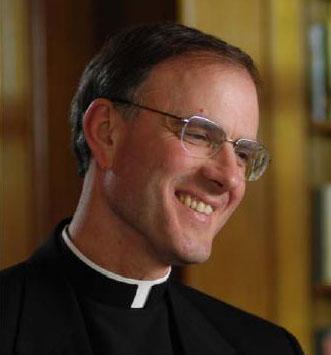 with Fr. Timothy Gallagher.
with Fr. Timothy Gallagher.
Fr. Gallagher, in this concluding episode, reviews the different dimensions of the Examen prayer and applications for our lives. Â
[powerpress]
As outlined from the Spiritual Exercises of St. Ignatius of Loyola
(translated from the autograph by Fr. E. Mullan, S.J. Â 1909Â in the public domain)
METHOD FOR MAKING THE GENERAL EXAMEN
It contains in it five Points.First Point. The first Point is to give thanks to God our Lord for the benefits received.
Second Point. The second, to ask grace to know our sins and cast them out.
Third Point. The third, to ask account of our soul from the hour that we rose up to the present Examen, hour by hour, or period by period: and first as to thoughts, and then as to words, and then as to acts, in the same order as was mentioned in the Particular Examen.
Fourth Point. The fourth, to ask pardon of God our Lord for the faults.
Fifth Point. The fifth, to purpose amendment with His grace.OUR FATHER.
Father Timothy M. Gallagher, O.M.V., was ordained in 1979 as a member of the Oblates of the Virgin Mary, a religious community dedicated to retreats and spiritual formation according to the Spiritual Exercises of St. Ignatius. Â Fr. Gallagher is featured on the EWTN series “Living the Discerning Life: Â The Spiritual Teachings of St. Ignatius of Loyola”. Â For more information on books and audio available for purchase from Fr. Timothy Gallagher check out his website: www.frtimothygallagher.org
For the other episodes in this series check out
Fr. Timothy Gallagher’s “Discerning Hearts†page
Tags: catholic, catholic podcast, catholic prayer, cathollc spirituality, Father Timothy M. Gallagher, Timothy Gallagher
This entry was posted on Monday, May 19th, 2014 at 1:53 pm
You can follow any responses to this entry through the RSS 2.0 feed.
Show 3 ” Building a Kingdom of Love” – “The Gift of Nothing“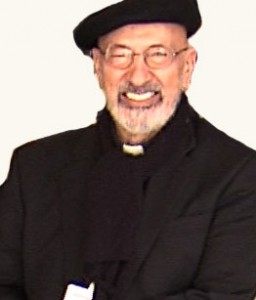
Msgr. Esseff begins by reading a passage from the book “The Gift of Nothing” by Patrick McDonnell.  He discusses how we all think what we will need “something”, but Msgr. helps us to see what God desires for us to see “the gift of nothing”.  What we desire deep down is intimacy.  Msgr. Esseff offers how Jesus reaches out to us in Divine Love…the Bread of Life.  The Eucharist offers  intimacy, will we accept the gift?
[powerpress]

Msgr. John A. Esseff is a Roman Catholic priest in the Diocese of Scranton. He was ordained on May 30th 1953, by the late Bishop William J. Hafey, D.D. at St. Peter’s Cathedral in Scranton, PA. Msgr. Esseff served a retreat director and confessor to Blessed Mother Teresa.   He continues to offer direction and retreats for the sisters of the missionaries of charity around the world. Msgr. Esseff encountered St.  Padre Pio,  who would become a spiritual father to him. He has lived in areas around the world,  serving  in the Pontifical missions, a Catholic organization established by Bl. Pope John Paul II to bring the Good News to the world especially to the poor. Msgr. Esseff assisted the founders of the Institute for Priestly Formation and continues to serve as a spiritual director for the Institute. He continues to  serve as a retreat leader and director to bishops, priests and sisters and seminarians and other religious leaders around the world. Â
To obtain a copy of Msgr. Esseff’s book byvisiting here
Be sure to visit Msgr. Esseff’s website “Building a Kingdom of  Love”
Tags: catholic, catholic podcast, catholic prayer, cathollc spirituality
This entry was posted on Monday, May 19th, 2014 at 10:01 am
You can follow any responses to this entry through the RSS 2.0 feed.
THE WAY OF PERFECTION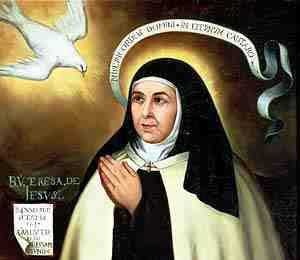
By
St. Teresa of Avila
Chapter 23
[powerpress]
For the pdf containing the complete text and footnotes click here
Describes the importance of not turning back when one has set out upon the way of prayer. Repeats how necessary it is to be resolute.
For other audio chapters of
“The Way of Perfection”
THE WAY OF PERFECTION
by
ST. TERESA OF AVILA
Translated & Edited by
E. ALLISON PEERS
from the Critical Editon of
P. SILVERIO DE SANTA TERESA, C.D.
Tags: catholic, catholic podcast, catholic prayer, cathollc spirituality, st. teresa of avila, The Way of Perfection
This entry was posted on Saturday, May 17th, 2014 at 5:46 pm
You can follow any responses to this entry through the RSS 2.0 feed.
It was rich blessing to have the opportunity to talk Fr. Robert Cormier about his book “Better Than We Believed:  How to Apply the 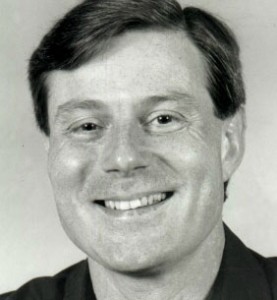 Vision That Is Faith to the Struggle That Is Life”.  With an incredible witness in ministry Fr. Bob, as he prefers to be called, has served a parish priest for many years, as well as  prison chaplain and a rehab counselor. For the last eighteen years he has been president of Project Live—a leading institution for the care of the mentally ill.  He also spent summers in mission work in  Guatemala and other areas of Central America.  This varied background serves him well as he addresses many of the the areas which challenge many people when it comes to “faith”.  What is faith?  And how do I live it out?  Especially when afraid or challenged, how can I draw on faith for strength to live the life that we were meant for? This books is an excellent resource and wonderful source of inspiration.
Vision That Is Faith to the Struggle That Is Life”.  With an incredible witness in ministry Fr. Bob, as he prefers to be called, has served a parish priest for many years, as well as  prison chaplain and a rehab counselor. For the last eighteen years he has been president of Project Live—a leading institution for the care of the mentally ill.  He also spent summers in mission work in  Guatemala and other areas of Central America.  This varied background serves him well as he addresses many of the the areas which challenge many people when it comes to “faith”.  What is faith?  And how do I live it out?  Especially when afraid or challenged, how can I draw on faith for strength to live the life that we were meant for? This books is an excellent resource and wonderful source of inspiration.
(Special note:; On May 13, Fr. Bob died in a climbing accident on Mount Hood in Oregon, after reaching the summit. He was 57 years old. Eternal rest grant unto him, O Lord, and let perpetual light shine upon him. May the soul of Fr. Bob, through the mercy of God, rest in peace. Amen.)
[powerpress]
You can find the book here
Here is a link to Faith Kit, the website Fr. Bob mentions during our conversation www.faithkit.org
Presuming nothing that both traditional believers and critical-thinking searchers will not find in their hearts, Better Than We Believed presents a strikingly clear concept of faith that answers the unhappiness of people you will recognize:MARK, who struggles with angerIRENE, who battles stressHENRY, who is consumed by hatredGLORIA, who has been betrayedBRIAN, who suffers depressionMARY, who feels trapped by her duty to a loved oneJOY, who can’t get over a loved one’s death, andJAMES, who knows that he is dyingAs we witness this faith applied to these and other serious struggles, we will see how it can transform our own experience, and offer us peace, purpose, and joy.
Tags: catholic, catholic podcast, catholic prayer, cathollc spirituality
This entry was posted on Friday, May 16th, 2014 at 3:22 pm
You can follow any responses to this entry through the RSS 2.0 feed.
BTP#36 – The Prayer of St. John Paul IIÂ – The Mystery of Faith in the Wisdom of the Saints.
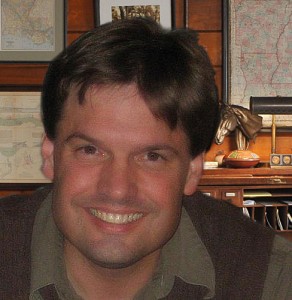 [powerpress]
[powerpress]
In this episode Dr. Lilles discusses The Prayer of St. John Paul II. He reflects on “Sign of Contradiction” The Lenten Retreat reached in 1976 by Karol Cardinal Wojtyla to Pope Paul VI and the papal household.
 Dr.Anthony Lilles is a Catholic husband and father of three teaching Spiritual Theology at St. John Vianney Theological Seminary. He teaches spiritual theology and spiritual direction to transitional deacons, and the spiritual classics to the men who enter the Spirituality Year, a year of prayer in preparation for seminary formation. He is the author of the “Beginning to Pray” Catholic blog spot. For other episodes in the series visit the Discerning Hearts page for Dr. Anthony Lilles
Dr.Anthony Lilles is a Catholic husband and father of three teaching Spiritual Theology at St. John Vianney Theological Seminary. He teaches spiritual theology and spiritual direction to transitional deacons, and the spiritual classics to the men who enter the Spirituality Year, a year of prayer in preparation for seminary formation. He is the author of the “Beginning to Pray” Catholic blog spot. For other episodes in the series visit the Discerning Hearts page for Dr. Anthony Lilles
Tags: Anthony Lilles, catholic, catholic podcast, catholic prayer, cathollc spirituality, Karol Cardinal Wojtyla, pope paul vi, St. John Vianney Theological Seminary
This entry was posted on Friday, May 16th, 2014 at 1:56 pm
You can follow any responses to this entry through the RSS 2.0 feed.
WOL5 – Episode 5-  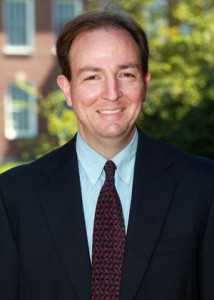 The  “Declaration of Independence” and American political philosophy and what it involves.  What is the “natural law” and how it applies to political thought.  There are principals of political “rights and wrongs” and these are the foundations for political practice (which are not always followed by the human person).  What are the “self-evident” truths?  What are “natural rights”?  Why did this system of thought survive given the American experience compared to the results of the French revolution and its theories?  Both might be “children” of the Enlightenment, but one was hostile to Christianity, the other embraced it. [powerpress]
The  “Declaration of Independence” and American political philosophy and what it involves.  What is the “natural law” and how it applies to political thought.  There are principals of political “rights and wrongs” and these are the foundations for political practice (which are not always followed by the human person).  What are the “self-evident” truths?  What are “natural rights”?  Why did this system of thought survive given the American experience compared to the results of the French revolution and its theories?  Both might be “children” of the Enlightenment, but one was hostile to Christianity, the other embraced it. [powerpress] 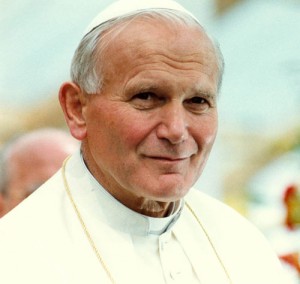
The Way of Life, Carson Holloway examines the fundamental philosophers of modernity-from Hobbes to Toqueville-to suggest that St. John Paul II’s critique of modernity is intended not to reject, but to improve. Thus, claims Holloway, it is appropriate for liberal modernity to attend to the Pope’s thought, receiving it not as the attack of an enemy but as the criticism of a candid friend.
  For other episodes in the series visit Dr. Holloway’s Discerning Hearts page
This series is based on Dr. Holloway’s book “The Way of Life”
Tags: catholic, catholic podcast, catholic prayer, cathollc spirituality
This entry was posted on Friday, May 16th, 2014 at 10:46 am
You can follow any responses to this entry through the RSS 2.0 feed.
Dr. Matthew Bunson discusses the life, times and teachings of St. John Chrysostom pt 1
-
Born: 347 AD, Antioch, Turkey
-
Died: September 14, 407 AD, Comana Pontica
  - Homilies on the Gospel of St. MatthewÂ
  - Homilies on ActsÂ
  - Homilies on RomansÂ
  - Homilies on First CorinthiansÂ
  - Homilies on Second CorinthiansÂ
  - Homilies on EphesiansÂ
  - Homilies on PhilippiansÂ
  - Homilies on ColossiansÂ
  - Homilies on First ThessaloniansÂ
  - Homilies on Second ThessaloniansÂ
  - Homilies on First TimothyÂ
  - Homilies on Second TimothyÂ
  - Homilies on TitusÂ
  - Homilies on PhilemonÂ
  - Commentary on GalatiansÂ
  - Homilies on the Gospel of JohnÂ
  - Homilies on the Epistle to the HebrewsÂ
  - Homilies on the StatuesÂ
  - No One Can Harm the Man Who Does Not Injure HimselfÂ
  - Two Letters to Theodore After His FallÂ
  - Letter to a Young WidowÂ
  - Homily on St. IgnatiusÂ
  - Homily on St. BabylasÂ
  - Homily Concerning “Lowliness of Mind”Â
  - Instructions to CatechumensÂ
  - Three Homilies on the Power of SatanÂ
  - Homily on the Passage “Father, if it be possible . . .”Â
  - Homily on the Paralytic Lowered Through the RoofÂ
  - Homily on the Passage “If your enemy hunger, feed him.”Â
  - Homily Against Publishing the Errors of the BrethrenÂ
  - First Homily on EutropiusÂ
  - Second Homily on Eutropius (After His Captivity)Â
  - Four Letters to OlympiasÂ
  - Letter to Some Priests of AntiochÂ
  - Correspondence with Pope Innocent IÂ
  - On the Priesthood
From Vatican.va, an excerpt from the teachings of Pope Benedict XVI General Audience 2009 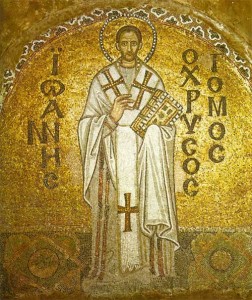
Dear Brothers and Sisters,
This year is the 16th centenary of St John Chrysostom’s death (407-2007). It can be said that John of Antioch, nicknamed “Chrysostom”, that is, “golden-mouthed”, because of his eloquence, is also still alive today because of his works. An anonymous copyist left in writing that “they cross the whole globe like flashes of lightening”.
Chrysostom’s writings also enable us, as they did the faithful of his time whom his frequent exiles deprived of his presence, to live with his books, despite his absence. This is what he himself suggested in a letter when he was in exile (To Olympias, Letter 8, 45).
He was born in about the year 349 A.D. in Antioch, Syria (today Antakya in Southern Turkey). He carried out his priestly ministry there for about 11 years, until 397, when, appointed Bishop of Constantinople, he exercised his episcopal ministry in the capital of the Empire prior to his two exiles, which succeeded one close upon the other – in 403 and 407. Let us limit ourselves today to examining the years Chrysostom spent in Antioch.
He lost his father at a tender age and lived with Anthusa, his mother, who instilled in him exquisite human sensitivity and a deep Christian faith.
After completing his elementary and advanced studies crowned by courses in philosophy and rhetoric, he had as his teacher, Libanius, a pagan and the most famous rhetorician of that time. At his school John became the greatest orator of late Greek antiquity.
He was baptized in 368 and trained for the ecclesiastical life by Bishop Meletius, who instituted him as lector in 371. This event marked Chrysostom’s official entry into the ecclesiastical cursus. From 367 to 372, he attended the Asceterius, a sort of seminary in Antioch, together with a group of young men, some of whom later became Bishops, under the guidance of the exegete Diodore of Tarsus, who initiated John into the literal and grammatical exegesis characteristic of Antiochean tradition.
He then withdrew for four years to the hermits on the neighbouring Mount Silpius. He extended his retreat for a further two years, living alone in a cave under the guidance of an “old hermit”. In that period, he dedicated himself unreservedly to meditating on “the laws of Christ”, the Gospels and especially the Letters of Paul. Having fallen ill, he found it impossible to care for himself unaided, and therefore had to return to the Christian community in Antioch (cf. Palladius, Dialogue on the Life of St John Chrysostom, 5).
For more visit Vatican.va
Dr. Matthew Bunson, Senior Fellow of the St. Paul Center for Biblical Theology, is one of the United States’ leading authorities on the papacy and the Church.
His books include: The Encyclopedia of Catholic History; The Encyclopedia of Saints; Papal Wisdom; All Shall Be Well; Encyclopedia of the Roman Empire; and The Angelic Doctor: The Life and World of St. Thomas Aquinas; The Pope Encyclopedia; We Have a Pope! Benedict XVI, the first Catholic biography of the Holy Father in the English language; the Encyclopedia of U.S. Catholic History; Pope Francis. His also the editor of OSV’s “The Catholic Answer” magazine.
Tags: catholic, catholic podcast, catholic prayer, cathollc spirituality, John Chrysostom, matthew bunson, st john chrysostom
This entry was posted on Friday, May 16th, 2014 at 8:21 am
You can follow any responses to this entry through the RSS 2.0 feed.
Episode 1 – History, with Arms Upraised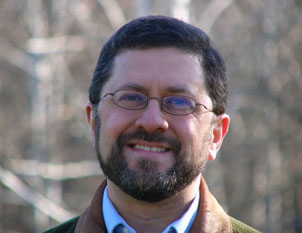
[powerpress]
The Resilient Church with Mike Aquilina, offers a fascinating look at the trials and triumphs of the Catholic Church over the past two thousand years. Fast-paced sketches of critical periods in church history give readers perspective on the challenges faced by the church today. Mike Aquilina does not shrink from the realities of the past, including badly behaved leaders and those who betrayed the Lord. Yet he also leaves us all with well-founded hope for the future: God remains faithful in every circumstance and fulfills his promise to remain with his church always.
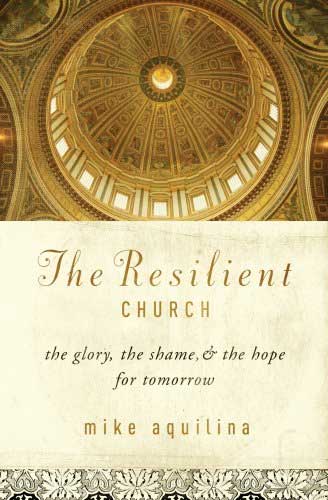 Pick up a copy of Mke’s book. You’ll find so much more and invaluable references and resoources, as well
Pick up a copy of Mke’s book. You’ll find so much more and invaluable references and resoources, as well
Also visit Mike’s “Discerning Hearts†page for more audio downloads and information!
Tags: catholic, catholic podcast, catholic prayer, cathollc spirituality, church history, mike aquilina, Resilient Church
This entry was posted on Thursday, May 15th, 2014 at 9:19 am
You can follow any responses to this entry through the RSS 2.0 feed.
USCCA42Â Chapter 33 – Practice Purity of Heart: The 9th Commandment 
[powerpress]
Archbishop Lucas offers insights on the US Catholic Catechism for Adults Chapter 33:
MODESTY Modesty is a virtue necessary for purity. It flows out of the virtues of temperance, chastity, and self-control. A modest person dresses, speaks, and acts in a manner that supports and encourages purity and chastity, and not in as manner that would tempt or encourage sinful sexual behavior. Modesty protects the mystery of the person in order to avoid exploiting the other. This attitude instills in us the patience and reserve we need for avoiding unbecoming behavior. Modest relationships reflect the connection between the marital state and sexual behavior. Modest behavior respects the boundaries of intimacy that are imbedded in our natures by the natural law and the principles of sexual behavior laid out in Divine Revelation. Modesty ensures and supports purity of heart, a gift that enables us to see God’s plan for personal relationships, sexuality, and marriage.
United States Conference of Catholic Bishops (USCCB) (2012-04-02). United States Catholic Catechism for Adults (Kindle Locations 6383-6389). United States Conference of Catholic Bishops (USCCB). Kindle Edition.
The Most Reverend George J. Lucas leads the Archdiocese of Omaha.Â
For other episodes in the visit our Archbishop George Lucas page
This programs is based on:
More information can be found here.
We wish to thank the USCCB for the permissions granted for use of  relevant material used in this series.
Tags: catholic, Catholic Catechism, catholic podcast, catholic prayer, cathollc spirituality, George Lucas, United States Conference of Catholic Bishops
This entry was posted on Thursday, May 15th, 2014 at 8:58 am
You can follow any responses to this entry through the RSS 2.0 feed.
Episode 27- The Holy Rule of St. Benedict: A Spiritual Path for Today’s World with Fr. Mauritius Wilde O.S.B., 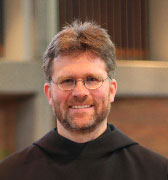 PhD.
PhD.
“To contemplate the Holy Eucharist”
[powerpress]
From the Holy Rule of St. Benedict:
PROLOGUE
Listen, O my son, to the precepts of thy master, and incline the ear of thy heart, and cheerfully receive and faithfully execute the admonitions of thy loving Father, that by the toil of obedience thou mayest return to Him from whom by the sloth of disobedience thou hast gone away.
To thee, therefore, my speech is now directed, who, giving up thine own will, takest up the strong and most excellent arms of obedience, to do battle for Christ the Lord, the true King.
In the first place, beg of Him by most earnest prayer, that He perfect whatever good thou dost begin, in order that He who hath been pleased to count us in the number of His children, need never be grieved at our evil deeds. For we ought at all times so to serve Him with the good things which He hath given us, that He may not, like an angry father, disinherit his children, nor, like a dread lord, enraged at our evil deeds, hand us over to everlasting punishment as most wicked servants, who would not follow Him to glory.
 For more information about the ministry of the the Missionary Benedictines of Christ the King Priory in Schuyler, Nebraska visit here:
For more information about the ministry of the the Missionary Benedictines of Christ the King Priory in Schuyler, Nebraska visit here:
Tags: catholic, catholic podcast, catholic prayer, cathollc spirituality, Holy Rule of St. Benedict
This entry was posted on Wednesday, May 14th, 2014 at 4:46 pm
You can follow any responses to this entry through the RSS 2.0 feed.
Episode 12-The Way of Mystery: The Eucharist and Moral Living 
 The Liturgy of the Eucharist part 4 : the Communion Rite…The moment of radical surrender…can we do it? We when come forward to communion, what are doing…what are we saying? Will we allow ourselves to be transformed? The moment of silence…will we allow ourselves to be transformed within so we can go out to transform the culture for Christ?
[powerpress]
For more episodes in “The Way of Mystery” Series click here
Deacon James Keating, PhD, the director of Theological Formation for the Institute for Priestly Formation, located at Creighton University, in Omaha, is making available to â€Discerning Hearts†and all who listen, his series of programs entitled “The Way of Mysteryâ€.
 The Vatican II documents remind us that the spiritual journey is not made in a vacuum, that God has chosen to save us, not individually, but as The People of God. The Eucharist must help Christians to make their choices by discerning out of Christ’s paschal mystery. For this process to take place, however, Christians must first understand how the Eucharist puts them in touch with Christ’s passion, death, and resurrection, and what concrete implications being in touch with this mystery has for their daily lives.
The Vatican II documents remind us that the spiritual journey is not made in a vacuum, that God has chosen to save us, not individually, but as The People of God. The Eucharist must help Christians to make their choices by discerning out of Christ’s paschal mystery. For this process to take place, however, Christians must first understand how the Eucharist puts them in touch with Christ’s passion, death, and resurrection, and what concrete implications being in touch with this mystery has for their daily lives.
For more information on the “Institute of Priestly Formation†and for other material available by Deacon Keating, just click here
Don’t forget to pickup a copy of “Communion with Christ†, it is one of the best audio sets on prayer…ever!
Check out Deacon Keating’s “Discerning Heart†page
Tags: catholic, catholic podcast, catholic prayer, cathollc spirituality, Deacon Keating, james keating, the eucharist, theological formation
This entry was posted on Wednesday, May 14th, 2014 at 4:19 pm
You can follow any responses to this entry through the RSS 2.0 feed.
Episode 7 The Daily Prayer of Discernment: The Ignatian Wisdom of the Examen Prayer with Fr. Timothy Gallagher.
Fr. Gallagher continues to discuss the  the fifth step – RENEWAL – which is how we move forward after our encounter with God in our prayer.
[powerpress]
As outlined from the Spiritual Exercises of St. Ignatius of Loyola
(translated from the autograph by Fr. E. Mullan, S.J. Â 1909Â in the public domain)
METHOD FOR MAKING THE GENERAL EXAMEN
It contains in it five Points.First Point. The first Point is to give thanks to God our Lord for the benefits received.
Second Point. The second, to ask grace to know our sins and cast them out.
Third Point. The third, to ask account of our soul from the hour that we rose up to the present Examen, hour by hour, or period by period: and first as to thoughts, and then as to words, and then as to acts, in the same order as was mentioned in the Particular Examen.
Fourth Point. The fourth, to ask pardon of God our Lord for the faults.
Fifth Point. The fifth, to purpose amendment with His grace.OUR FATHER.
Father Timothy M. Gallagher, O.M.V., was ordained in 1979 as a member of the Oblates of the Virgin Mary, a religious community dedicated to retreats and spiritual formation according to the Spiritual Exercises of St. Ignatius. Â Fr. Gallagher is featured on the EWTN series “Living the Discerning Life: Â The Spiritual Teachings of St. Ignatius of Loyola”. Â For more information on books and audio available for purchase from Fr. Timothy Gallagher check out his website: www.frtimothygallagher.org
For the other episodes in this series check out
Fr. Timothy Gallagher’s “Discerning Hearts†page
Tags: catholic, catholic podcast, catholic prayer, cathollc spirituality, Father Timothy M. Gallagher, Timothy Gallagher
This entry was posted on Tuesday, May 13th, 2014 at 4:14 pm
You can follow any responses to this entry through the RSS 2.0 feed.




